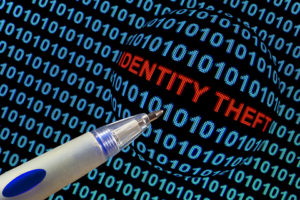Weak Passwords Mean Data Breaches
 Studies across the board indicate that weak usernames and passwords are one of the top causes of data breaches, and I find that information to be unfortunate, because it is preventable. According to a recently concluded survey conducted by uSamp and sponsored by Siber Systems, creators of the RoboForm Password Manager: 70% reported forgetting a password, or had a password become compromised, in their professional life in the US.
Studies across the board indicate that weak usernames and passwords are one of the top causes of data breaches, and I find that information to be unfortunate, because it is preventable. According to a recently concluded survey conducted by uSamp and sponsored by Siber Systems, creators of the RoboForm Password Manager: 70% reported forgetting a password, or had a password become compromised, in their professional life in the US.
- More organizations are enacting policies where employees can use their own devices and store information on a cloud.
- This means that it is more important than ever before to protect accounts with strong passwords.
- A strong password is the first line of defense against scammers and hackers, and it helps to keep data safer.
The Research on Passwords Doesn’t Lie
The data from these studies indicates that there is no organization in any industry that is not vulnerable to a breach of data.
- Every company, no matter what size, should put in some effort to protect their sensitive data.
- Many breaches of data could have been prevented by implementing stronger security controls, improving credentials used to long in and employing safety best practices in the workplace.
- Weak or stolen usernames and passwords are one of the top causes of data breaches, and more than 75 percent of attacks on corporate networks are due to weak passwords.
- Almost half of all instances of hacking is due to stolen passwords, which are obtained through the theft of password lists.
Know The Risks of Choosing Weak Passwords
Experts have warned for many years that there are risks associated with relying on weak usernames and passwords to restrict the access of data.
- Verizon estimates that about 80 percent of all data breaches could have been stopped if a stronger, better password was used.
- Experts, including the IT team of companies, can offer assistance to employees seeking to improve their passwords and reduce risk.
- Too many companies protect their data with passwords that are too weak or too easy to guess, such as the name of the organization or other obvious words.
- It is also difficult to enact policies for improved passwords in the workplace because employees are not informed of the facts.
- The best passwords are long and varied, with symbols, letters and numbers. These passwords should also not be obvious, such as the name of a company, address or company motto.
- One of the best investments in ones personal security is in a password manager. Frankly, I don’t know how anyone can use a PC and not have a password manager in place.
Robert Siciliano is a personal privacy, security and identity theft expert to RoboForm discussing identity theft prevention. Disclosures.


























